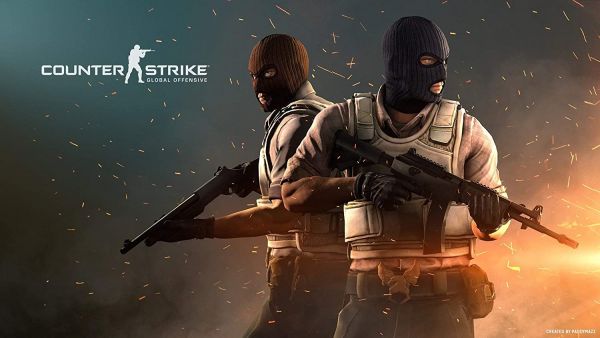Asik Cloud Insights
Your gateway to the latest trends in technology, cloud computing, and digital innovation.
When Killing Your Team Becomes a Crime: Understanding CSGO Teamkill Penalties
Discover the shocking truth about CSGO teamkill penalties and why they can ruin your game. Learn the rules before you pull the trigger!
Understanding Teamkill Penalties in CSGO: What Every Player Should Know
Understanding Teamkill Penalties in CSGO is crucial for every player looking to enhance their gaming experience. In Counter-Strike: Global Offensive, intentional or unintentional teamkills can lead to significant penalties that affect not only the individual player but also the team's overall strategy. Players should be aware that frequent teamkills can result in being kicked from the match, and repeated offenses can lead to more serious consequences, such as being banned from matchmaking. Therefore, it is essential to practice good communication and teamwork to minimize the risk of damaging your teammates and incurring penalties.
To avoid teamkill penalties, players can adopt a few key strategies. First, make it a habit to check your crosshair and positioning before taking shots, especially in crowded situations. Utilizing voice communication or in-game signals can also help coordinate movements and strategies with teammates, reducing the likelihood of accidental kills. Furthermore, players should familiarize themselves with the game mechanics related to team damage, as it is limited in certain modes like Deathmatch while more severe in others like Competitive.

Counter-Strike is a highly competitive first-person shooter that has captivated gamers worldwide since its inception. Players can engage in intense rounds where strategy, teamwork, and skill are crucial for success. Many players transitioning from other games often seek guidance on adjusting their settings, such as valorant to cs2 sens to ensure optimal performance.
The Consequences of Team Killing in CSGO: How It Affects Your Gameplay
Team killing in Counter-Strike: Global Offensive (CSGO) can have severe consequences that extend beyond just the immediate frustration of the victim. When a player engages in team killing, it affects the overall team dynamics and morale. This act disrupts coordination and can lead to a breakdown in communication, which is vital for success in a team-based game. Moreover, consistent team killing can result in penalties from the game’s matchmaking system, including being placed in a lower skill tier or even receiving temporary bans. These repercussions not only hinder the offending player’s progress but also negatively impact the experiences of their teammates who may become demotivated or disengaged.
Furthermore, the psychological aspect of team killing cannot be overlooked. Players who are repeatedly targeted may experience heightened stress and anxiety, diminishing their performance. This impact can create a toxic environment, leading to more players abandoning games prematurely. The ripple effect of team killing can be profound; as frustration builds, it can incite further conflict among teammates, aggravating the situation and escalating tensions. In essence, the consequences of team killing in CSGO not only disrupt individual gameplay but can also poison the entire team experience, making it crucial for players to be mindful of their actions and promote a more respectful gaming environment.
Can Team Kills Lead to Bans? Exploring CSGO's Approach to In-Game Violence
Team kills in CS:GO have always been a controversial topic within the gaming community. Players often wonder if these in-game actions can lead to actual bans or penalties. The game's developer, Valve, employs a combination of automated reporting systems and player moderation to address this issue. For players who consistently engage in team killing—defined as intentionally killing teammates—there can be significant repercussions, including temporary bans or being placed in lower matchmaking tiers. Understanding the consequences of such actions is crucial for players aiming to maintain a positive gaming experience.
Moreover, CS:GO has a built-in report system that allows players to flag teammates who engage in negative behavior, including team kills. Reports are reviewed, and consistent offenders can face serious penalties. However, it is important to differentiate between accidental kills, which are generally overlooked, and intentional acts of in-game sabotage. Community members often discuss the effectiveness of these measures in forums, emphasizing the need for fair play and respect among teammates. In conclusion, while not every team kill will result in a ban, a pattern of disruptive behavior may lead to serious consequences within the game.